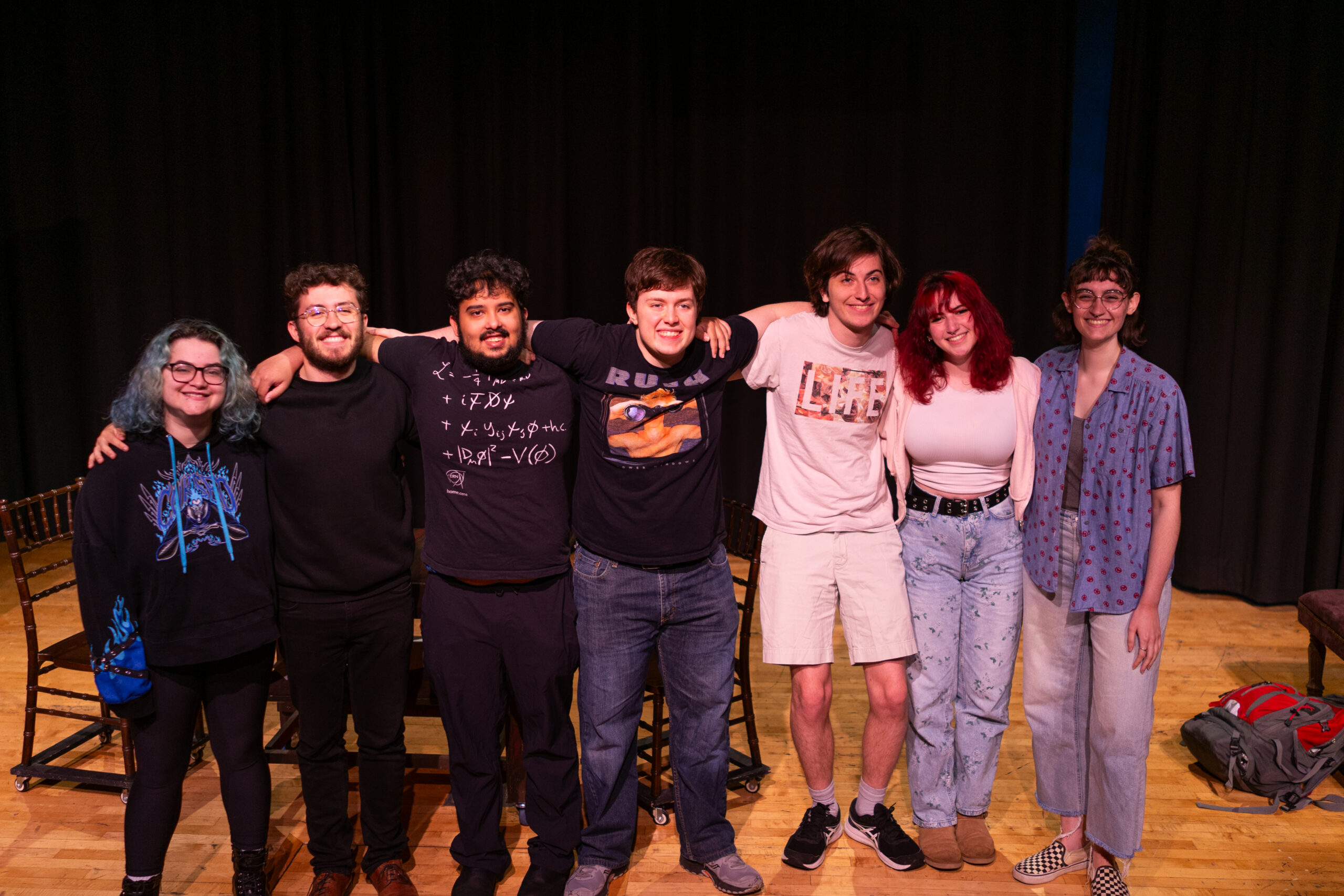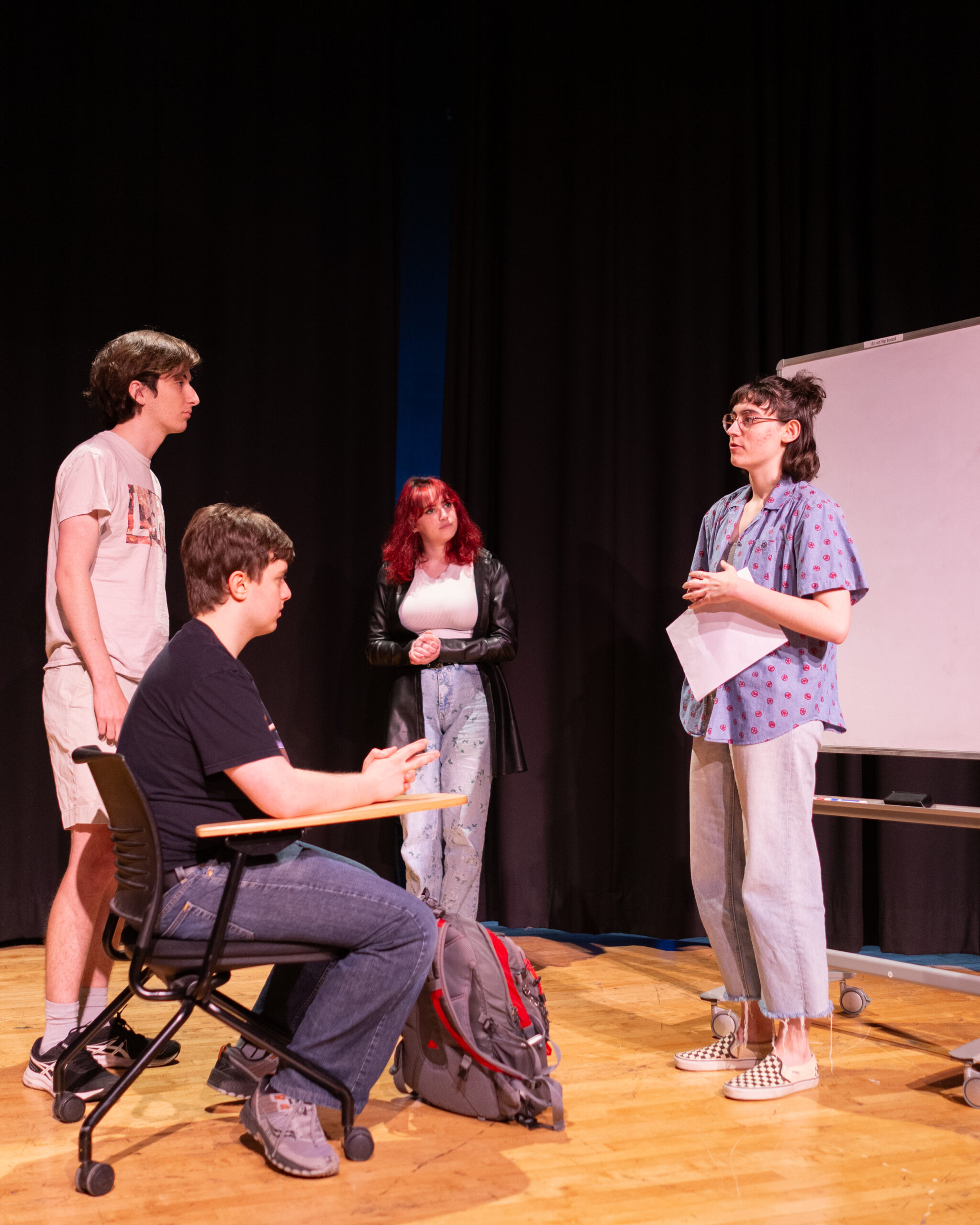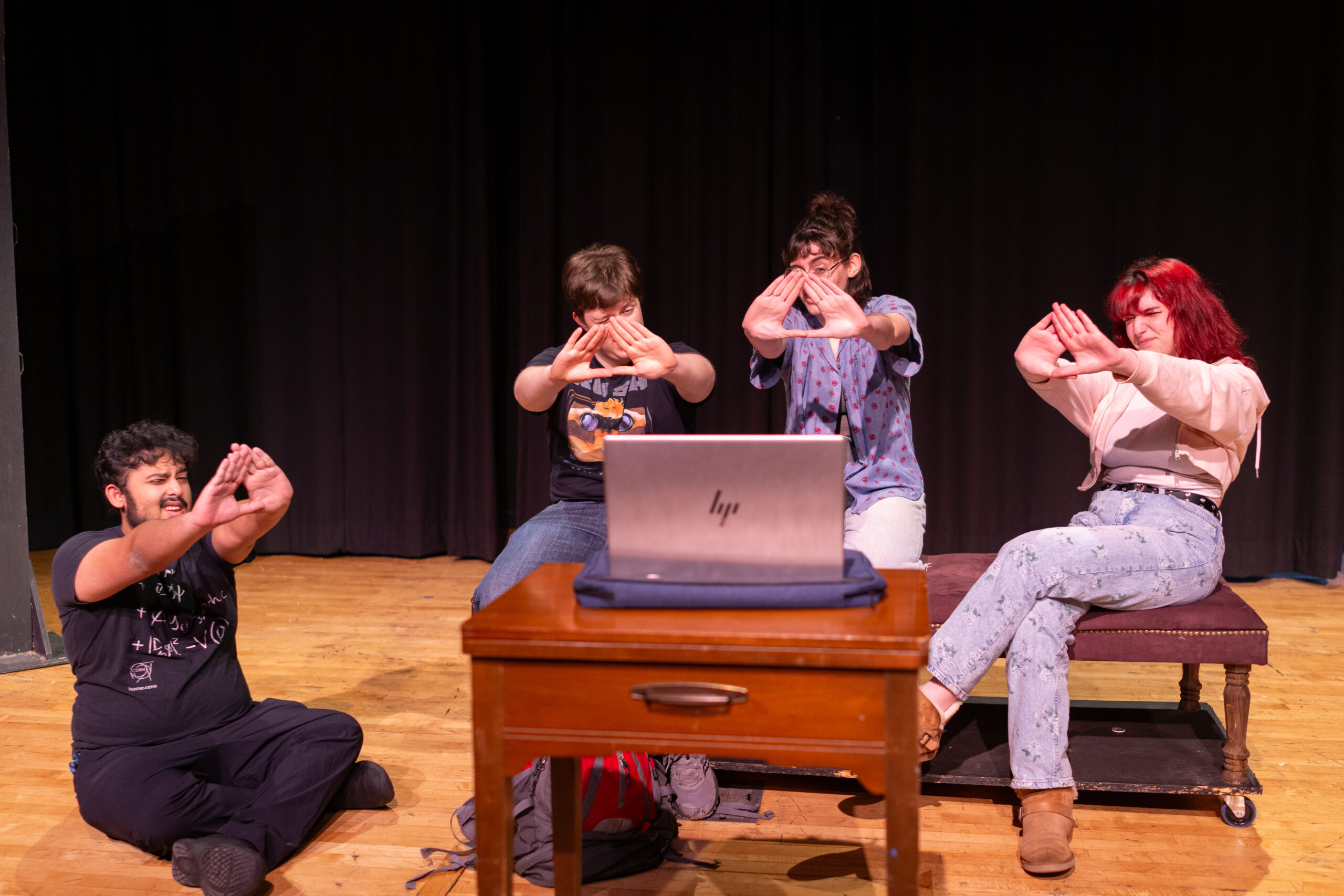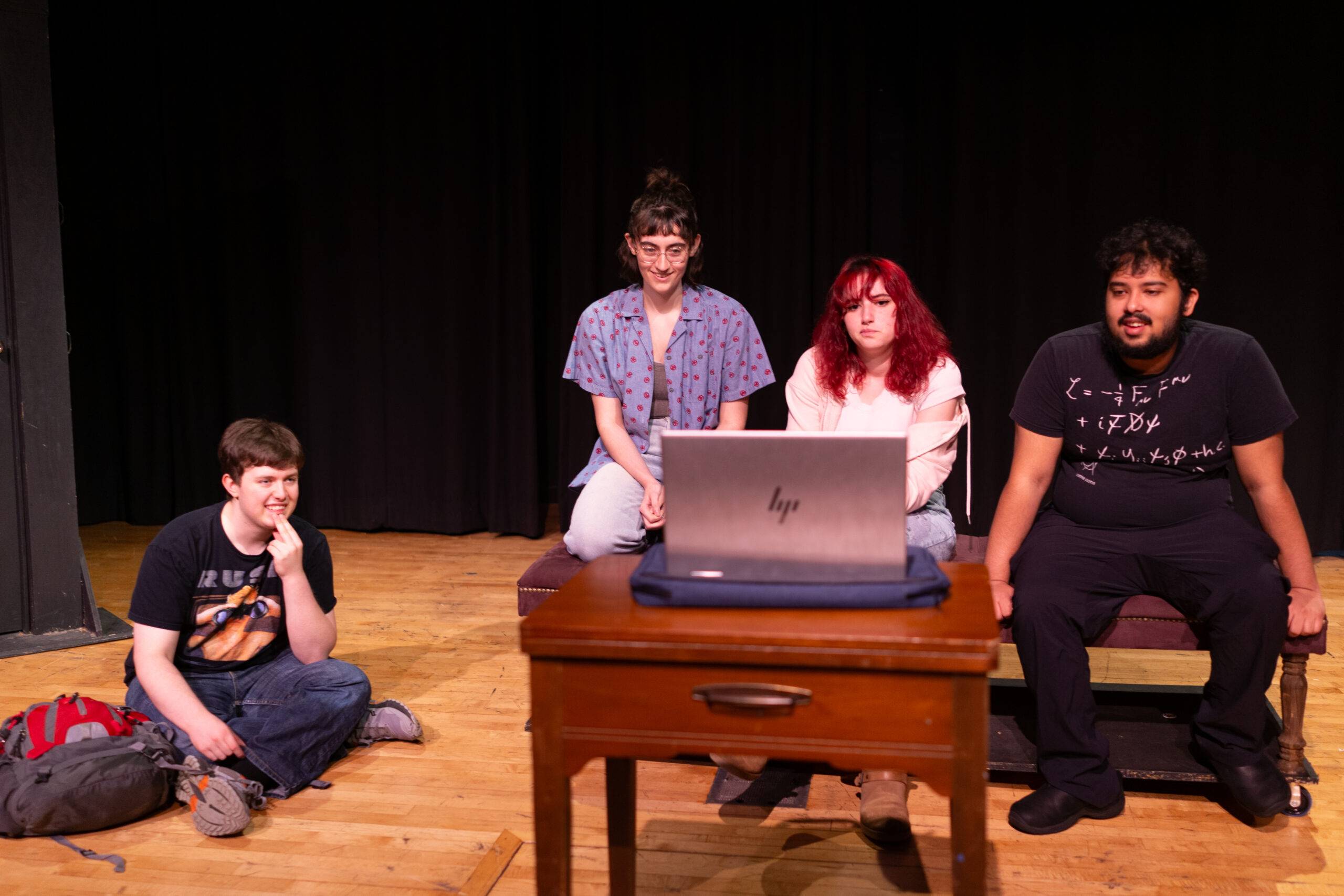By Eric Lippe, Magazine Editor
On April 26 at 7 p.m., theatre arts and economics dual major Gabe Houser ’24 debuted his capstone project, “Myself and I,” an original one-act show that ran 40 minutes. There was an additional matinée April 27 at 2 p.m.
Houser wrote, directed and starred in the show, performing it alongside a small cast of five others with two crew members.
“Myself and I” was a series of vignettes that portrayed several challenges and joys that the main character, Gabe Paul (Houser), experienced. The title came from the unique way that the show portrayed Gabe’s inner thoughts—through a character named Internal Gabe (Henry Grinnell ’24), sometimes referred to as IG.
According to Houser, the character of Internal Gabe was inspired by his own experiences: “I talk to myself frequently and lots of the conversations are like ones I have in real life.”
In order to best utilize the small cast in a variety of scenarios, only Houser and Grinnell play a single character, while the other actors swapped between different roles depending on the scene. Together, Gabe and IG let the audience into the mind of the main character as he navigated both familiar and unique conflicts. Most of the show took place during the character’s college career, but a few scenes from the character’s childhood were portrayed as well.
In a flashback, Gabe’s parents—portrayed by Ellie Mandelberg ’27 and teaching assistant Jules Inizan—sit down with Gabe and IG to explain the reason why he struggles to interact with his peers: Gabe has autism.
This part of the character’s life affects how other students treat him, whether he feels welcome in a space or not, and his ability to engage in highly stimulating environments. Each of these aspects was featured in a different way throughout the show, either showing the source of the pertinent conflict, or its outcome.
Houser’s portrayal of Autism Spectrum Disorder (ASD) was lauded by audience members after Saturday’s performance.
“As a member of the neurodivergent community on campus, I thought it was a very true and raw representation of what students go through, both in class and social constructs,” said Elliott Wakefield ’26. “I think that Gabe did a brilliant job of portraying it in an honest and effective way.”
Another audience member, Katie Poliero ’25, echoed that sentiment: “I have never seen such accurate neurodivergent representation on stage. And it was really cool to see.”
In the play, during history class, Gabe hears about a club on campus called Divergence, a club for neurodivergent students to find community and support—an analog to Gettysburg’s own Phoenix Rising. From there, Gabe goes to the activities fair, where he meets the student members of Divergence.
Houser revealed that “Myself and I” was based on real experiences that he had, with fictionalized dialogue and characters.
Perhaps the most compelling part of the show was toward the end, where Gabe and several students from Divergence—played by Mandelberg, Nina Sgro ’25 and Dipto Provas ’25—had a movie night. The scene was a uniquely honest representation of neurodivergent social life, predicated on accepting one another’s differences and taking joy in one another’s passions.
“I always find it really amazing to watch neurodivergent representation by neurodivergent people, and I think this is a very good example,” said Ofek Eisenbach ’25, who was the stage manager and light and sound board operator. “A really good representation specifically is the scene where they’re all in Lily’s (Mandelberg) dorm watching a movie and they kind of just trade off talking about their hyperfixations, because I do that with my friends. And it’s like—that just happens. It’s a very authentic representation that you don’t usually see in media.”
After closing, Houser revealed that this scene was actually improvised: “I wanted to show Gabe finding friends in a quick amount of time. With my cast, I was like, ‘you just want to try improv in this part?’ Like this was not in the script. It is completely unscripted. It’s just like the four of us being college kids and having fun.”
The result was a scene that was enjoyable both for the audience to watch and for the cast to put together.
“It was nice to be in a theatre environment where everybody was collaborating very coolly and like non confrontationally. It was just a very collaborative environment,” said Sgro, speaking on the show’s production. “I didn’t know that something could come together so well under such relaxed and respectful circumstances.”
Grinnel shared, “the interesting thing about doing a show so personal to someone is that it seems that you aren’t just a part of a one-act on stage, you’re a part of something bigger. And I’m proud to be a part of that.”
The accuracy and honesty felt by the audience was not an accident but a deliberate intention of the show, according to Houser.
“Authentic representation was the goal. Authentic to me and authentic to the community,” said Houser. “Not only is there a lack of faithful representation as to what these people actually go through, a lot of what people focus on is the negative. They make it look like being neurodivergent is a bad thing, but when, in reality, it is a beautiful thing. I’m not trying to glorify having autism because it has its struggles, but there’s no one else I would rather be than me.”
Houser emphasized the importance of representation in his work.
“I learned that a lot of people are like, ‘realism is boring.’ Well, that’s because we just keep showing the same mundane things of life. We show the average human experience; we do not always show the experience of minorities,” Houser said. “To anyone who may criticize realism: we need to expand our scope. There are so many stories to tell from just regular people that we can all learn from.”
Houser added, “…finding your people is the most important. And a lot of that happens at college. To anyone who is struggling out there: your people are out there.”
Houser wanted to thank his parents, the Theatre Department, Henry Grinnell, Nina Sgro, Jules Inizan, Ellie Mandelberg, Dipto Provas, Ofek Eisenbach and Nicholas Ryan for all of their support for the project.




